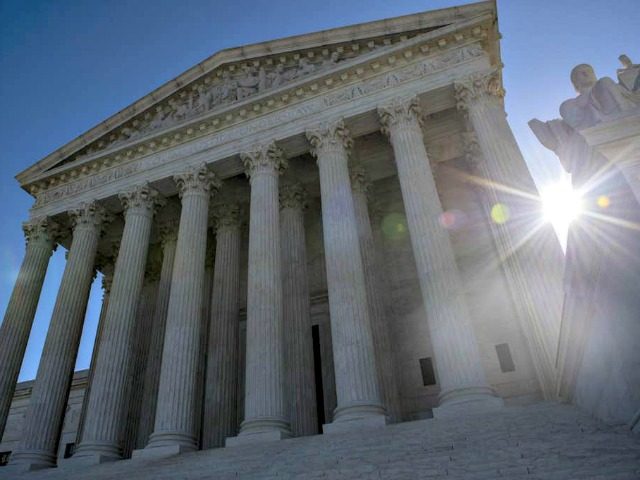The United States Supreme Court (SCOTUS) ruled on Thursday that the burden of proof under federal immigration law falls on illegal aliens when they are trying to escape deportation.
In a 5-3 decision, where Justice Amy Coney Barrett recused herself, a majority on the Court ruled in the case Pereida v. Wilkinson that it is incumbent on illegal aliens who are in deportation proceedings to prove they have not committed a crime of moral turpitude, thus making them eligible to avoid deportation.
The case involved Clemente Avelino Pereida, an illegal alien from Mexico who has been in the U.S. since 1995 and has a wife and children — one of which is a U.S. citizen and another who is enrolled in the Deferred Action for Childhood Arrivals (DACA) program.
Pereida was charged and convicted in Nebraska of criminal impersonation for providing a fraudulent Social Security Number to work illegally. The Department of Justice (DOJ) can provide relief from deportation for illegal aliens in cases where a crime of moral turpitude was not committed.
Justice Gorsuch, writing for the majority with Justices Samuel Alito, Clarence Thomas, Brett Kavanaugh, and Chief Justice John Roberts, said Pereida had failed to prove he was not convicted of a crime of moral turpitude and thus was not eligible to avoid deportation.
Gorsuch wrote:
The INA expressly requires individuals seeking relief from lawful removal orders to prove all aspects of their eligibility. That includes proving they do not stand convicted of a disqualifying criminal offense. [Emphasis added]
…
Under the INA, certain nonpermanent aliens seeking to cancel a lawful removal order must prove that they have not been convicted of a disqualifying crime. The Eighth Circuit correctly held that Mr. Pereida failed to carry this burden. Its judgment is affirmed. [Emphasis added]
Justices Sonia Sotomayor, Stephen Breyer, and Elena Kagan dissented in the case. For the dissent, Justice Breyer wrote that Pereida should be eligible to avoid deportation, arguing that criminal impersonation is not a crime of moral turpitude.
“The relevant documents, in this case, do not show that the previous conviction at issue necessarily was for a crime involving moral turpitude,” Breyer wrote.
The case is Pereida v. Wilkinson, No. 19-438 in the Supreme Court of the United States.
John Binder is a reporter for Breitbart News. Email him at jbinder@breitbart.com. Follow him on Twitter here.

COMMENTS
Please let us know if you're having issues with commenting.